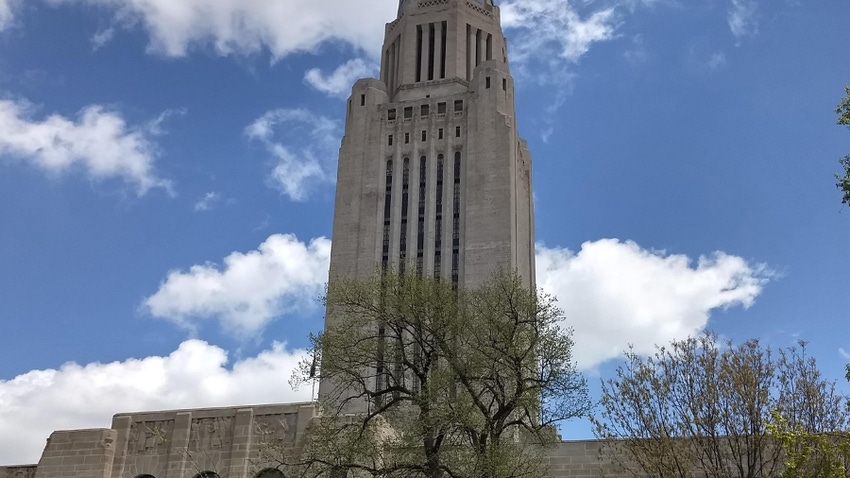
It was Monday, Sept. 10, 2007. Terry Hejny, on his first day on the job, was both nervous and honored, all at once. Hejny had just completed his duties at Nebraska Extension in Cass County and was stepping into his new role as director of Nebraska LEAD.
“I remember that day like it was yesterday,” Hejny recalls. “I had just completed my duties in Cass County the previous Friday. It was surreal as I couldn’t believe it was happening.”
Hejny had considerable shoes to fill. The LEAD program was founded by Jim Horner, who just happened to be Hejny’s college adviser in the ag education department at the University of Nebraska. The second director, Allen Blezek, had served for 23 years and was one of Hejny’s college professors — as well as the LEAD director when Hejny participated in LEAD 20 from 2000 to 2002.
Hejny went on after college to serve as vocational agriculture and FFA advisor at Geneva Public Schools from 1980 to 1997, before taking on the position as Extension educator, and eventually Nebraska LEAD director.
“The position as director of Nebraska LEAD was an opportunity or door that opened for me and my family at the right moment,” Hejny recalls. But on that first day on the job, there was also nervousness.
“At the same time, I was feeling a high level of anxiety in following Dr. Blezek as director,” he says. “With Husker Harvest Days beginning the next day, I had to get to work as LEAD 27 would be coming to Lincoln for their first seminar in six days. I was experiencing a full range of emotions.”
Learning to LEAD
This upcoming June, after 17 years of heading up LEAD, Nebraska’s two-year agricultural leadership fellowship program, Hejny is retiring.
Reflecting on the program itself, the Milford native says, “LEAD is as important today as it was when it began in 1981. In the next five to 10 years, our industry will see an increase in the number of those retiring from production and agribusiness careers. This means that there will be numerous leadership opportunities available. It is so very important that we prepare the next generation to step into these leadership roles.”
The next generation in agriculture cannot afford to sit on the sidelines, Hejny adds.
“They need to become active in their respective grower associations and commodity boards at the grassroots, state and national levels,” he says. “They need to begin preparing themselves for positions of leadership, and that is why they need to participate in the Nebraska LEAD program.
“We have the top adult agricultural leadership development program right here in our state. So many Nebraskans have ownership in LEAD, and I know they will keep it on top.”
Hejny knows the challenges ahead. “The challenges facing our world are food, water, international trade, climate change, population, energy and human health and are all closely related to agriculture,” he says. “Our industry can and must lead the way. Nebraska agriculture must continue to prepare leaders with a strong knowledge base, relevant exposures and experiences and important leadership and social skills necessary to respond to these major challenges. That is exactly what the Nebraska LEAD program is designed to do.”
It's the people
Hejny says that his favorite memories working with LEAD have come from the people he has worked with and traveled with.
“The places we traveled to are important, but the people I traveled with are the most important,” he says. “I’ve had a great ride, and I have loved every minute of it. I’ve had so much support and assistance along the way, so many have touched my life and made it so much better.”
Hejny says that he isn’t really riding off into the sunset on June 30. He is just preparing for the next adventure. He will be retiring not only as director of LEAD, but also as president and chief operating officer of the nonprofit Nebraska Agricultural Leadership, which governs LEAD in cooperation with UNL’s Institute of Agriculture and Natural Resources.
Over the coming months, Hejny will be busy wrapping up his duties as director, but also preparing his staff, NALC board members and Nebraska LEAD Class 42 for a smooth transition. A national search for a new director will begin this month.
Class 42 announced
Last August, Nebraska LEAD announced Class 42 for the 2023-25 period. These members include Michelle Bose, Arcadia; Matthew Oswald, Aurora; Adam Oldemeyer, Ayr; Annalyssa Fountain, Bellevue; Levi French, Broken Bow; Ryan Hanousek, Cairo; Wes Cammack De Witt; John Garlock, Elkhorn; Nicholas Swenson, Greenwood; April Delsing, Hemingford; Logan Reed, Holdrege; Sloane Holtmeier, Kearney; Nic Grams, Rachel Ibach, Michael Manning, Nathan Watermeier and Jake Werner, Lincoln; Sidney Robinson, Loomis; Brad Parliament, Mason City; Jessica Palm, Mitchell; Emmet Storer, North Platte; Cathryn Klein, Omaha; Kelby Sudbeck, Ord; Blake Hokamp, Randolph; Traci Menke and Zach Tveitnes, Seward; Carter Smith Shelby; Brett Storer, Wahoo; and Dalton Kenning, Wood River.
About the Author(s)
You May Also Like






